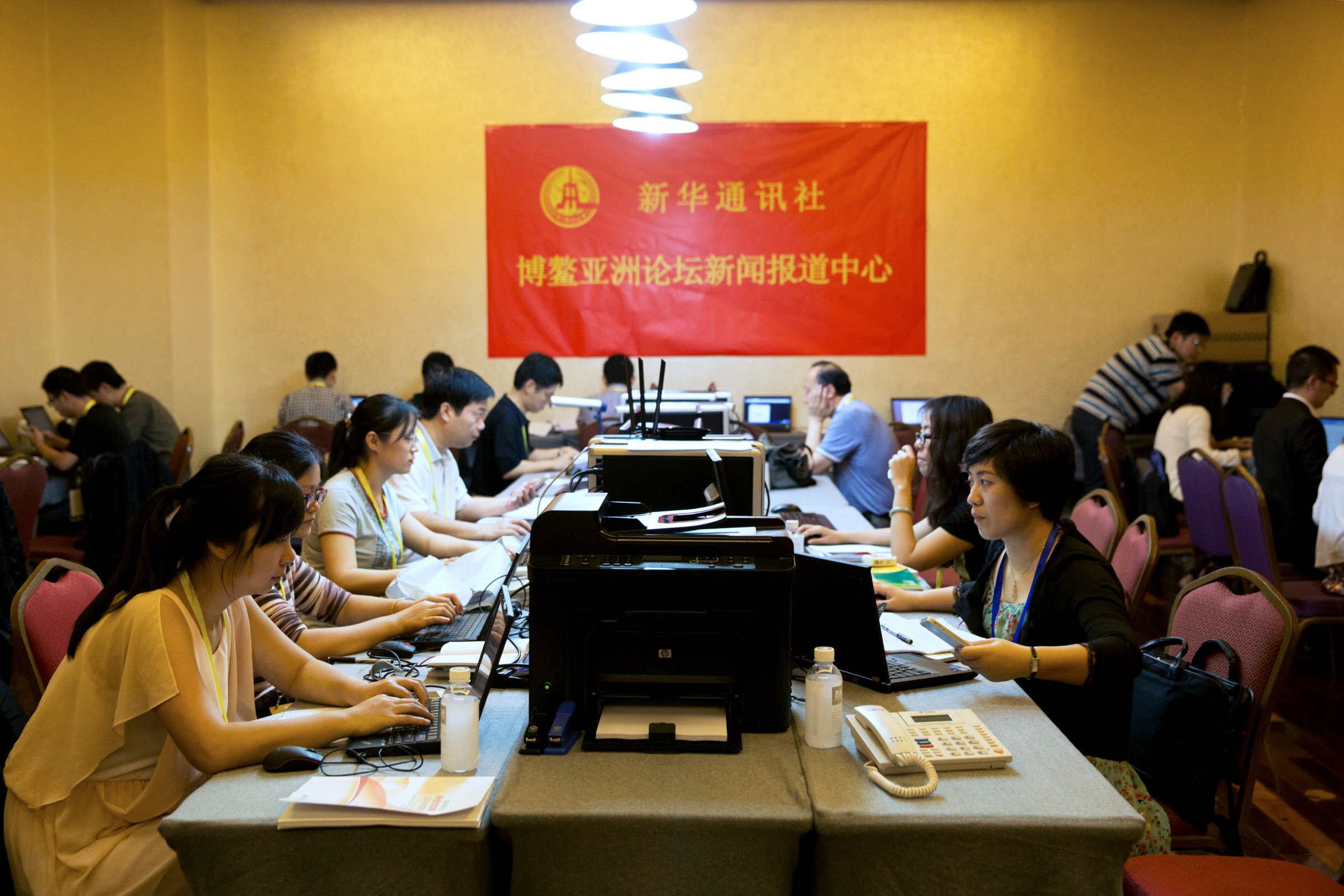
Chinese journalists discovered on July 8 that they had been scooped. More than a week before, the press authority had tightened the screws on the nation’s beleaguered press corps by issuing a set of ambiguous rules that give authorities significant latitude to silence reporters.
But it wasn’t until Tuesday afternoon that the government, through the state-run Xinhua News Agency, bothered to alert journalists to the new regulations, which ban media from disseminating “various information, materials and news products that journalists may deal with during their work, including state secrets, commercial secrets and unpublicized information.” Got that?
In addition to that frustratingly broad swath of now off-limits material, Xinhua added that the State Administration of Press, Publication, Radio, Film and Television had specifically banned the “illegal copying, recording or storage of state secrets.”
What exactly constitutes a “state secret,” or a “news product,” or “unpublicized information,” isn’t clear. But in the past, Chinese journalists have been locked up for divulging information in cases that international human-rights groups have deemed spurious.
In April, a 70-year-old reporter named Gao Yu was detained on suspicion of leaking “a secret central-party document” to a foreign website. (In a neat catch-22, the content of a purported state secret often cannot be released to the public because, well, it’s a state secret.) Gao had spent more than five years in jail in the 1990s on another state-secrets conviction. In May, she was paraded on TV apparently admitting to wrongdoing — part of a recent spate of televised confessions in which dissidents and others seem to profess guilt even before their cases have made their way through the courts.
“Gao is the latest victim of China’s vaguely worded and arbitrary state-secret laws, which the authorities repeatedly use as a smoke screen to target activists,” said Anu Kultalahti, China researcher at Amnesty International.
Chinese journalists reacted to the latest government directive with both confusion and outrage. One magazine journalist said she hadn’t heard of the new rules until she was contacted by TIME on Tuesday afternoon. She was left with many questions. “Is there any official list clarifying what is a state secret and what is not?” she asked. “If we want to cover an official’s corruption scandal, is this scandal a state secret? Who knows?”
Another reporter who specializes in investigative journalism saw the June 30 rules as “another shackle imposed on journalists.” He continued, “I have discussed this with other journalists, and the general consensus is that self-censorship within the media will probably intensify. More and more topics will become untouchable.”
President Xi Jinping has unleashed a corruption crackdown that has netted hundreds of errant officials in all levels of government. But covering these graft scandals is a tricky business for reporters, who receive daily government directives on what they can and cannot write about. The June 30 directive further limits journalists, ordering them to sign nondisclosure agreements with their news organizations. They are also forbidden from disclosing certain information to other domestic and foreign-media or websites. Nor can that material be published on social-media forums.
While local journalists clearly face much greater danger, the foreign press has also been squeezed in recent months. The Chinese government has refused to issue new accreditations for journalists from Bloomberg and the New York Times, after both media organizations ran stories detailing the wealth accumulated by the families of top party leaders.
In May, Xin Jian, a Chinese news assistant working for the Japanese financial newspaper, Nihon Keizai Shimbun, was detained in the southwestern metropolis of Chongqing. The reason for Xin’s detention? She was suspected of “picking quarrels and provoking troubles.” That’s a charge that could be punishable by up to 10 years in prison.
— Beech reported from Beijing
More Must-Reads from TIME
- How Donald Trump Won
- The Best Inventions of 2024
- Why Sleep Is the Key to Living Longer
- Robert Zemeckis Just Wants to Move You
- How to Break 8 Toxic Communication Habits
- Nicola Coughlan Bet on Herself—And Won
- Why Vinegar Is So Good for You
- Meet TIME's Newest Class of Next Generation Leaders
Contact us at letters@time.com